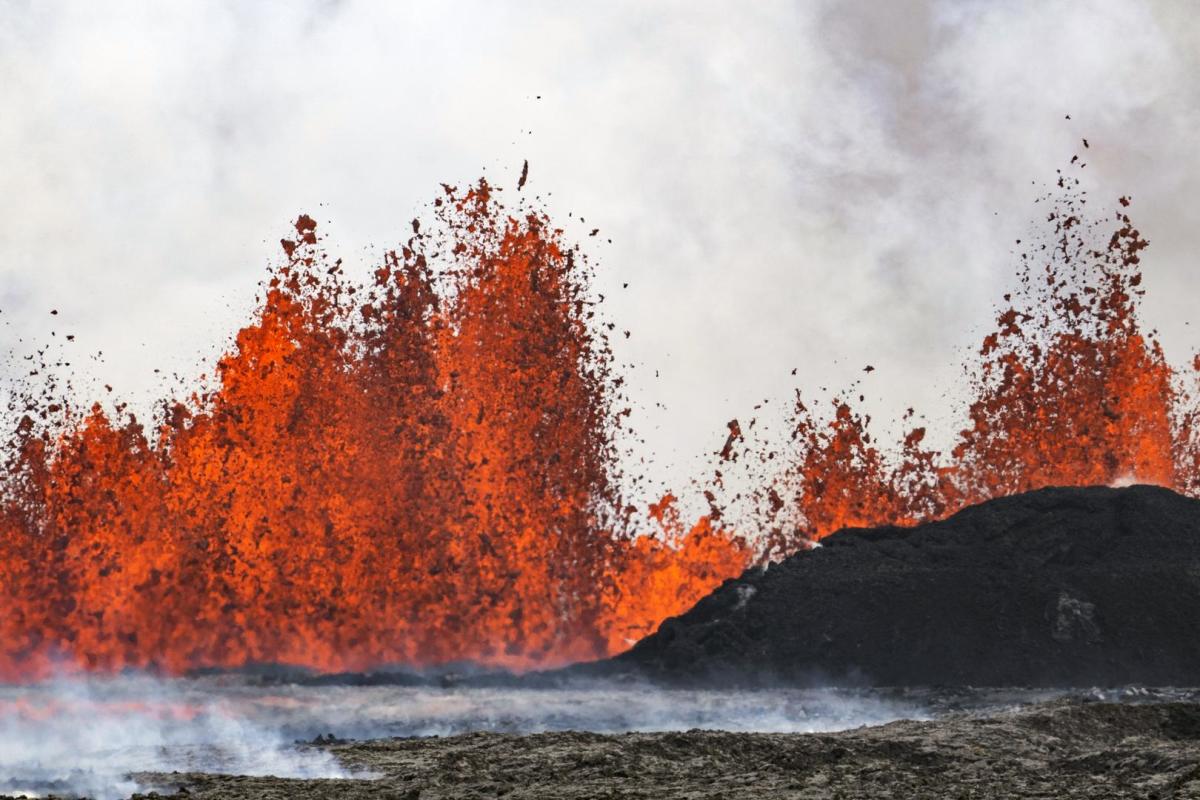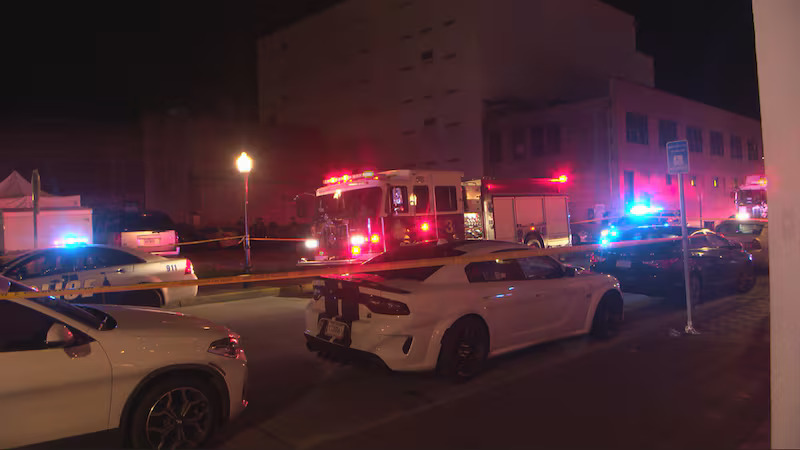On Wednesday, a volcano erupted in Iceland’s Reykjanes peninsula, leading to a state of emergency for thousands of nearby residents.
Videos captured the immense lava explosion in the southwestern region of Iceland and showed evacuations taking place at the renowned Blue Lagoon spa, which will remain closed until at least Friday.
Recent studies had warned of potential volcanic activity due to the accumulation of magma underground.
According to the Icelandic Meteorological Office, lava spewed from a 2.1-mile-long fissure, reaching heights of over 160 feet into the air. The molten rock flowed at a rate ranging from 52,000 to 70,600 cubic feet per second.
The lava advanced toward defensive walls near the fishing town of Grindavík, located less than 2 miles from the eruption site. Officials expressed optimism that the walls would contain the lava, as reported by the national public broadcaster RÚV.
The eruption resulted in explosions and gas pollution. Iceland’s Department of Civil Protection and Emergency Management reported that lava had covered roads, blocking the majority of routes.
The Icelandic Meteorological Office forecasted that winds would carry gas pollution southwestward toward the capital area through Thursday.
The eruption began with explosive activity when magma encountered groundwater, leading to steam explosions and ashfall, according to the IMO.
As a precautionary measure, officials shut down electricity in Grindavík to protect high-voltage lines from potential damage caused by the lava, as reported by RÚV. The lava posed a significant threat to a nearby power plant if it came into contact with the lines.
The Reykjanes peninsula has experienced five volcanic eruptions since December and around nine in recent years, according to the Icelandic government. The frequency of eruptions in Iceland has increased significantly since 2021, with eruptions typically occurring every five years, as stated by the government in December.



